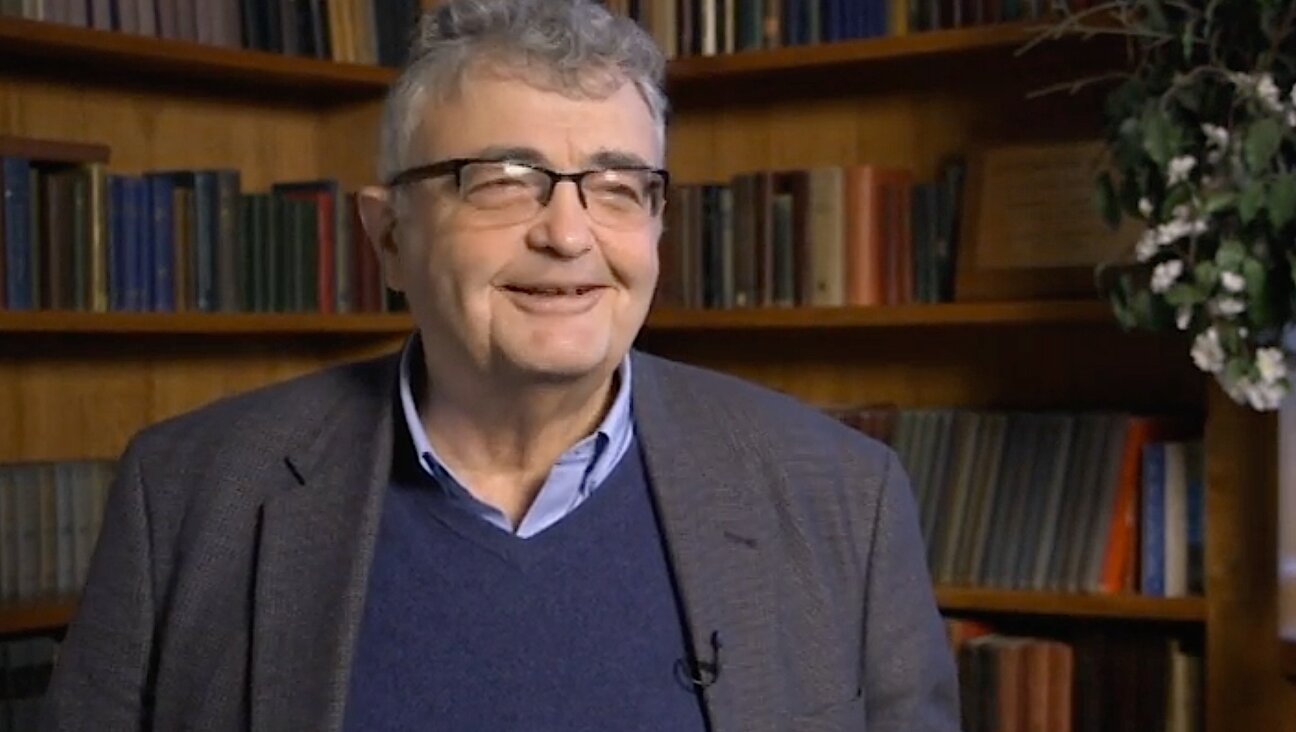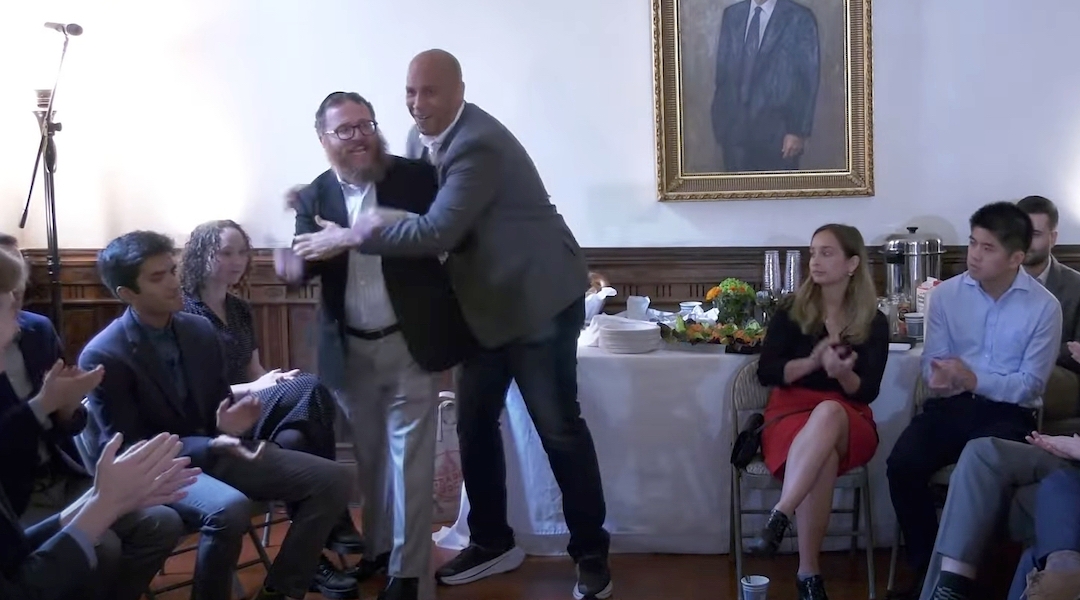Christmas Punning
We’re already into the new year, but in this column it’s still Christmas. Our discussion of nitl two weeks ago needs to be continued.
In the first place, two readers, Mark Friedman and Harvey Gertel, have written in to help explain the traditional Eastern European Jewish custom, referred to by me, of playing cards on Christmas Eve. Mr. Friedman writes:
And Mr. Gertel has this to say:
These two letters complement each other. Yet a third letter, in connection with my suggestion that nitl was in part a pun on nit, comes from Ruven Gottlieb, who writes:
Meanwhile, I did some more research myself and came across an interesting discussion of nitl and other Eastern-European Jewish terms for Christmas in Volume III of “The Language and Culture Atlas of Ashkenazic Jewry.” Punning derogatorily in different languages on Christian words for this holiday, it turns out, was indeed a time-honored Jewish practice. The “Atlas” even agrees with me in explaining the shift of the “a” in Latin natalis to the “i” in Yiddish nitl as deriving from such a play on words, although it suggests that the word played on was not nit, “no” or “nothing,” but rather Hebrew nitleh, “the hanged one,” one of a number of traditional rabbinic epithets for Jesus. Strengthening this theory is the fact that, in the Western Yiddish of the Rhineland, Christmas was sometimes known as taluy-nakht, “the night of the hanged man.” But of course, there is no reason why both nit and nitleh could not have contributed to the pun.
Here are some more examples of Jewish “Christmas puns” given by the “Atlas”:
• In Ukraine and Romania, Christmas was commonly referred to by Yiddish speakers as blinde nakht, “Blind Night.” This was a pun translated from the Ukrainian, in which sviatyi vechir, “sacred evening,” was first turned by Jews into slipyi vechir, “blind evening.”
• In parts of Belarus, a Jewish word for Christmas was khoristvo, a pun on Ukrainian rizdvo, “Christmas,” and Belorussian khori, “sick.”
• Some Yiddish speakers in Western Poland called Christmas beyz-geboyrenish, “Badly Born,” playing on Polish Boz.e Narodzenie, “Divine Birth.” (In this connection I might also mention the Yiddish saying, found in Ignacy Bernstein’s collection of Yiddish proverbs, “Nitl iz a beyze leyd,” “Nitl is a bad sorrow.” Can this be yet another pun on Yiddish leyd, “sorrow,” and Hebrew leydah, “birth” — that is to say, a pun on the pun of beyz-geboyrenish?)
It’s clear, I think, why Christmas should have inspired so many Jewish puns. It was a day that Jews not only feared, as Mr. Gertel points out, but also had an instinctive distaste for, it being the holiday on which Christians celebrated the incarnation of God in human form of all Christian beliefs, the one to strike the Jewish mind as the most absurd and repugnant. And yet no Jew would have wanted Christians to overhear him making fun of Christmas, a dangerous activity, to say the least. Jews therefore encoded this mockery in the form of puns that even Christians with some knowledge of Yiddish would be unlikely to understand. And this also explains why the most obvious of all puns on Christmas was never resorted to by Jews, although the “Atlas” mentions that some informants were well aware of its possibility. I am referring to the German word for Christmas, Weihnacht, from Weihe (the “w” is pronounced like a “v”), a consecration or dedication. How could German- or Yiddish-speaking Jews have resisted changing this to Wehnacht, punning on Weh, “grief” or “woe,” the vey of our Yiddish “Oy vey”? And yet resist it they did, for Wehnacht or veynakht was never a Jewish term for Christmas. Clearly, it would have been an unsafe one to use.
The Forward is free to read, but it isn’t free to produce

I hope you appreciated this article. Before you go, I’d like to ask you to please support the Forward.
Now more than ever, American Jews need independent news they can trust, with reporting driven by truth, not ideology. We serve you, not any ideological agenda.
At a time when other newsrooms are closing or cutting back, the Forward has removed its paywall and invested additional resources to report on the ground from Israel and around the U.S. on the impact of the war, rising antisemitism and polarized discourse.
This is a great time to support independent Jewish journalism you rely on. Make a gift today!
— Rachel Fishman Feddersen, Publisher and CEO
Support our mission to tell the Jewish story fully and fairly.
Most Popular
- 1

Opinion The dangerous Nazi legend behind Trump’s ruthless grab for power
- 2

Culture Trump wants to honor Hannah Arendt in a ‘Garden of American Heroes.’ Is this a joke?
- 3

Opinion A Holocaust perpetrator was just celebrated on US soil. I think I know why no one objected.
- 4

Culture Did this Jewish literary titan have the right idea about Harry Potter and J.K. Rowling after all?
In Case You Missed It
-

Fast Forward Protesters clash in Crown Heights as Ben-Gvir visits Chabad headquarters
-

Yiddish ווידעאָ: היסטאָריקער שמואל קאַסאָוו דערציילט מעשׂיות פֿון זײַן משפּחה־געשיכטעVIDEO: Historian Samuel Kassow shares stories about his family history
דער ווידעאָ איז טשיקאַווע סײַ פֿאַרן אינהאַלט סײַ פֿאַר קאַסאָווס נאַטירלעכן ליטוויש־ייִדיש
-

Culture I have seen the future of America — in a pastrami sandwich in Queens
-

Culture Trump wants to honor Hannah Arendt in a ‘Garden of American Heroes.’ Is this a joke?
-
Shop the Forward Store
100% of profits support our journalism
Republish This Story
Please read before republishing
We’re happy to make this story available to republish for free, unless it originated with JTA, Haaretz or another publication (as indicated on the article) and as long as you follow our guidelines.
You must comply with the following:
- Credit the Forward
- Retain our pixel
- Preserve our canonical link in Google search
- Add a noindex tag in Google search
See our full guidelines for more information, and this guide for detail about canonical URLs.
To republish, copy the HTML by clicking on the yellow button to the right; it includes our tracking pixel, all paragraph styles and hyperlinks, the author byline and credit to the Forward. It does not include images; to avoid copyright violations, you must add them manually, following our guidelines. Please email us at [email protected], subject line “republish,” with any questions or to let us know what stories you’re picking up.















